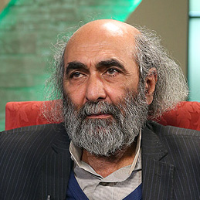The Sense of Quiddity in Farabi's Works
Abstract:
through the various eras of the history of philosophy, Ordinary quiddity has had several meanings and the philosophical terms in Farabi’s philosophy, as a bridge between Aristotle and Avicenna, do not present pose or repute perfectly their aspects and necessities. In spite of its distinction for Farabi Ordinary type quiddity is melded with and close to Existence. The evidence for This claim in Farabi’s writings is where he called quiddity “What the entity is”, “What the entity existence depends on” or “The dole of existence belong to the entity” where quiddity’s parts designate parts of entity existence. According to Farabi the absence of quiddity is the criteria of not existing and possessing an exposal quiddity is the criteria of existing. Therefore for the necessary Existent he affirms Ordinary type unity between his existence and his quiddity instead of his rejecting quiddity. In addition to “What is it?” quiddity is the answer to the questions of “Quality”, “Is it?” and “Due to what”. Moreover Farabi uses “essence”, “nature”, “substance” (correlatively), “thatness”, “definition” and occasionally “reality” in the same way.
Language:
Persian
Published:
Journal of Recognition, Volume:2 Issue: 2, 2009
Page:
39
https://magiran.com/p964428
سامانه نویسندگان
مقالات دیگری از این نویسنده (گان)
-
Iranian Hegel; The report and description of Seyyed Javad Tabatabai's reading of the dialogue between Mulla Sadra and Hegel
Ali Chavoshi *, Seyyed Mohammadtaqi Chawoshi, Nasrullah Hekmat
Asra Hikmat, -
Analysis and investigation of the idea of the permanence of human self-awareness in Allameh Tabatabai's view
Mohi Eddin Ehsandoust, *
Metaphysic,



